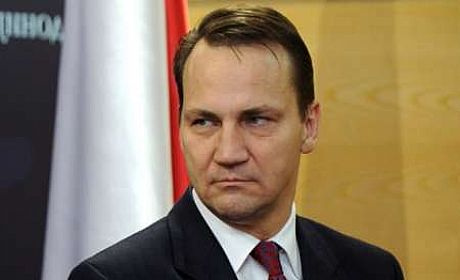A Visit of Political Counseling and Economic Ambitions

Contrary to the beliefs of some, Iran’s relations with Poland are one of the oldest historical relations of this country with Europe. 2014 is the 540th year of political relations between these two countries, starting in 1474. During these centuries, there have always been exchanges of political, diplomatic, economic, religious and even military delegations and, even during the occupation and disintegration of Poland, cultural relations between Iran and Poland have continued. In the 16th century, the aristocrats and Poland’s wealthy class, particularly those who had resided in the southern part of this country, attempted to find their Iranian roots. This group had Iranian roots and had migrated to Central Europe (today’s Poland) before the birth of Jesus Christ. The Book of Golestan by Saadi was translated to Polish in the year 3 B.C.
During the long years of Poland’s disintegration, which lasted more than a century (1795-1918), Iran was one of the two counties of the world which never recognized this disintegration and even before the independence of this country in 1918, it had an honorary consulate in Warsaw. One century later and during WWII, when Poland was once again under occupation (from 1942 until the end of the war), Iran was the host of more than 120000 Polish immigrants who, following Hitler’s attack on Russia, had been liberated from Siberian camps. Isfahan, which in particular was the center of the gathering of the Polish orphans of this great immigration, was known as “the city of Polish children”. Following the return of these immigrants to Poland, the teaching of the Persian Language and Iranology, which had been established before the war in one of the most prestigious universities of this country in Krakow, was established in the University of Warsaw. More than seventy years have passed since that incident and with the efforts made by the descendants of those refugees, a memorandum is to be held this week in this regard and a statue will be placed in one of the circles of Warsaw.
Following the collapse of Communism and the annexation of Poland to NATO and the EU, economic relations between the two countries, which were mainly governmental, have reduced due to their priority in finding European and western partners, and the political and cultural relations were also changed. Even a small street in Warsaw which was named after Tehran was eliminated from the map of this city. Nevertheless, during the years of EU sanctions against Iran, despite the fact that Poland, as a new member of this union, was bound to obey the collective decisions, it never attempted to take a hostile or unfriendly measure against Iran and sometimes Poland even tried to play a mediating role in Iran’s relations with the European Union. For example, when most of the European countries stopped giving fuel to Iran’s passenger airplanes, Poland answered positively to Iran’s demand in this regard (although Iran Air did not use this possibility).Or when, in the meeting of the EU Foreign Ministers in Cyprus, the Foreign Ministers of Germany, Britain and France made great efforts to intensify sanctions against Iran, the only voice which protested was the voice of Poland’s Foreign Minister, Radoslaw Sikorski. During this period when, based on an unwritten decision, any visit at the level of deputy ministers and higher to Iran was banned, Poland’s Minister for Culture and its Foreign Minister attempted to visit Iran but they were cancelled due to the pressures of the third parties. Nevertheless, the Parliamentary Friendship Group with Iran was formed during these years of sanctions and after six years during which it had stopped its activities.
Now, following the establishment of the government of Prudence and Hope by Mr. Rohani and in the shadow of the Geneva Agreement with regard to the resolution of the nuclear issue, Mr. Radoslaw Sikorski, the Foreign Minister of Poland, is the fourth minister of the European Union who is visiting the Islamic Republic of Iran as the head of a high-ranking delegation of political and economic officials of his country. The objective of this visit, besides the political consultations with regard to the most important regional and international issues, is to find the means to develop and deepen bilateral relations in all political, economic and cultural aspects.
Poland believes in Iran’s undeniable role in the resolution of regional crises in the Middle East and views Iran as its important and stable partner in this part of the world. That is why one month after the visit of the Polish Foreign Minister and in late April, the Deputy Prime Minister and the Economy Minister of this country are supposed to visit Tehran at the head of a delegation which will be composed of 50 people including the representatives of the biggest companies and economic institutions. Poland, as the sixth economic power of Europe and with its vast area and big population among the 28 EU members, attempts to redefine its role and stabilize its status inside Europe. On the other hand, the Islamic Republic of Iran, as a regional power in the Middle East and with its vast energy resources and scientific, economic and humanitarian capabilities, also intends to re-establish its old and glorious relations with Poland. Therefore, both countries have the capacity to be transformed into two of the most prestigious economic partners of the world.

